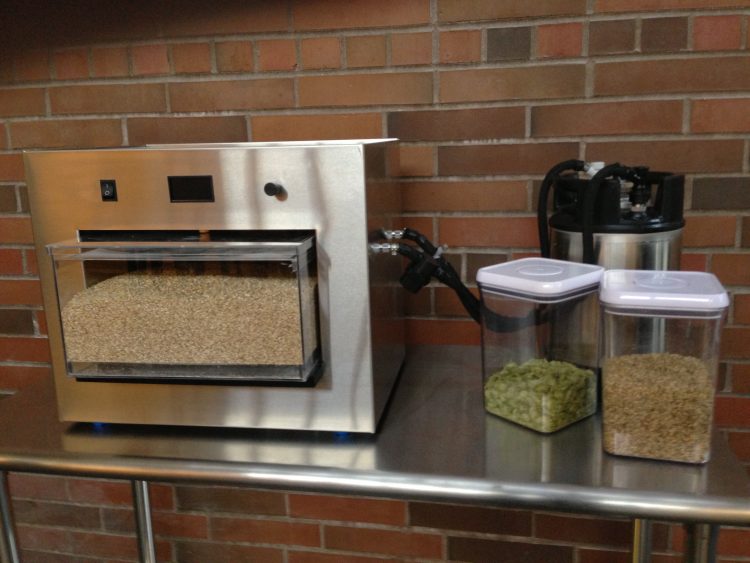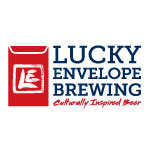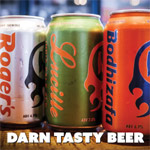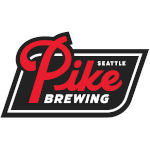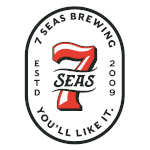Seattle is a city of innovators. Microsoft, Amazon, Fred Hutchinson Cancer Research Center. Seattle is also a city with over 40 craft breweries. And now, Seattle is the city that’s home to the latest innovation in craft brewing: PicoBrew.
PicoBrew is a home brewing appliance the size of a large microwave, designed to slide under kitchen cabinets. Using the same ingredients of any small or large brewing system, grains, hops and water, with PicoBrew you can create pretty much any kind of beer style you can dream up. With a lot less mess and hassle.
PicoBrew just launched a Kickstarter campaign on Monday, September 30th with a goal of $150,000. Today, only three days later, they are beyond funded – currently at $217K+. Some of that instant credibility came from some great, well-timed press in The Seattle Times. But the product video also features rave reviews from brewers who have worked with the system, including Fremont Brewing.
Surprisingly for me, according to co-founder, president and CEO, Bill Mitchell, their target buyer isn’t a well-to-do homebrewer. The initial target is actually pro brewers who can use the PicoBrew to work with new grains and hops, and do nano-sized test batches before scaling recipes up to the full system. While the PicoBrew will cost in the neighborhood of $1500, for pro breweries that’s still less expensive than messing around with test recipes on a seven-barrel system.
The secondary target market is home brewers who are serious enough that they are considering going pro. According to Mitchell, the company isn’t really counting the everyday home brewer as part of their target market. Their plan is to self-distribute with a more limited target market – at least for now.
And as for people who think it’s like a Keurig for beer? Not so fast. It actually requires more work than that, including knowledge of recipes, ingredients and the actual process. So it’s kind of like push-button beer, but not really. Aside from easy cleaning, the real benefit is that it makes the process of brewing small batches more stable and consistent through use of temperature and other controls.
So when you’re talking craft beer, the proof, as they say, is in the pudding. And this was some darn tasty pudding. Could you tell that the PicoBrew-brewed beers were created on a home appliance brewing system? Not a chance. Their beers had all the consistencies and flavors of any professionally brewed craft beer.
The three partners, Bill Mitchell, his brother John Mitchell, and longtime Microsoft colleague Avi Geiger, have brewed over 350 test batches on the system. Many are based on their long-time favorite beers, what they consider to be the standards of style. They had maybe a dozen of their PicoBrew beers on tap at their office, including styles intentionally similar to Left Hand Milk Stout, Alaskan Amber and Pliny the Elder.
PicoBrew comes integrated with a proprietary brewing computer program including initial recipes and guidelines for typical styles. As Bill Mitchell said, when you pay $1500 for an appliance, you expect to get a certain level of support with it.
As they are developing new recipes and testing the system, they do blind tastings to compare their beers to the ones they are attempting to match. Their goal: to have the PicoBrew beer beat out the “real” beer 50% of the time. And impressively enough, as with their Kickstarter campaign, they’ve hit the goal.

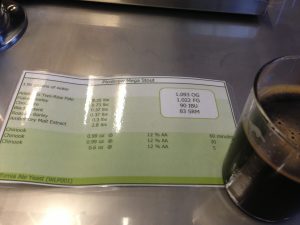
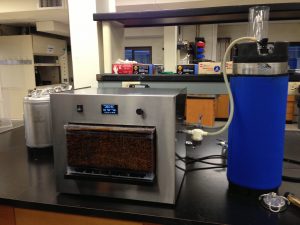
Cheers to our sponsors, like…

